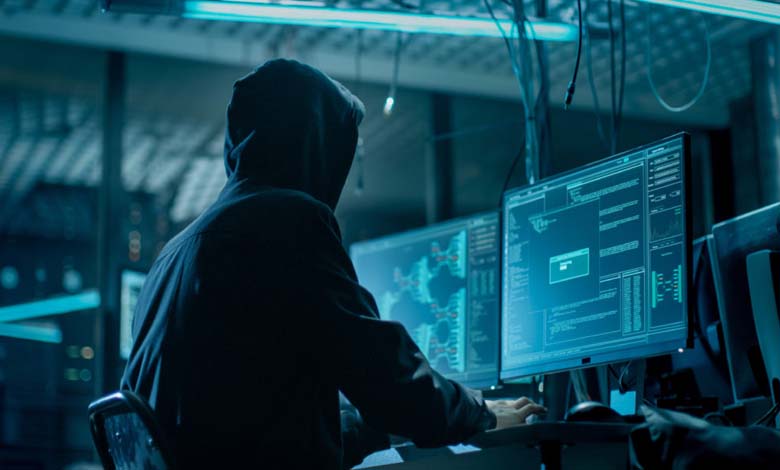Digital Spies and Faceless Enemies: The CIA in the Crosshairs of Artificial Intelligence

As the nature of warfare shifts from open battlefields to complex digital networks, the CIA finds itself engaged in a new kind of war — one without smoke or corpses, but no less dangerous.
-
Political Expert: Terrorist Groups Have Entered the Age of Artificial Intelligence – Governments Must Rethink Their Security Strategies
-
New Israeli Technologies in Gaza: Artificial Intelligence Sparks Ethical Debate
In his book The Mission, renowned intelligence reporter Tim Weiner paints a grim portrait of the CIA over the past 25 years: from its failure to prevent the 9/11 attacks to its role in justifying the Iraq War, and now facing threats from artificial intelligence and renewed great-power competition with Moscow and Beijing.
An agency long considered America’s first line of defense is now facing a multifaceted existential crisis: internal disarray, the obsolescence of traditional spycraft in the face of digital tools, and leadership unwilling to respect legal or ethical constraints.
-
The Search for the Missing in Ukraine: From War to Artificial Intelligence
-
Hamas Supporters in Universities… The U.S. Turns to Artificial Intelligence
The Mission is not just a review of blunders and scandals. It’s a stark warning that the world’s most powerful intelligence agency may not be ready for the next war — or for the enemy within.
Drawing from over 400 pages and dozens of interviews with former spies, Weiner details how CIA officers have been politically coerced, morally compromised, and, in at least one instance, have attempted to mislead the very public they served.
-
How the Far Right is Exploiting Artificial Intelligence in Germany’s Elections
-
Artificial Intelligence on the Battlefield: Will It Lose Control?
In a global context defined by war in Ukraine and Gaza, and with the U.S. retreating from its traditional role as global security guarantor, The Mission reads like a cautionary tale — a reminder of both the power and limits of intelligence.
As The Financial Times notes, Weiner argues that exposing the “secret history” of the past may be essential for a safer future. He opens with the line: “A new Cold War is slowly building toward an existential threat. Only good intelligence can stop a surprise attack, a fatal miscalculation, or a senseless war.”
-
Artificial Intelligence in Warfare… When Machines Become Both Judge and Executioner
-
Artificial Intelligence… Can It Revive ISIS Media?
The Challenge of Digitization
As the war on terror recedes, the CIA has refocused on classic espionage against major powers. But technology has outpaced old methods: biometric tracking, facial recognition, and data surveillance now make clandestine operations nearly impossible.
The agency has historically been slow to adapt. After the Cold War, it was unprepared for the rise of global terrorism. While the CIA was busy targeting Al-Qaeda and ISIS, Russia annexed Crimea, and China vastly expanded its cyber-espionage capabilities.
-
Technology Expert : Artificial Intelligence Can Be Used to Undermine Terrorist Groups
-
Mandatory Extension: Recruitment Crisis Shrinks Israel’s Military Options
The legacy of 9/11 — and the abuses that followed — still overshadows CIA operations today, particularly as every person now leaves a digital footprint.
Weiner touches briefly on new technologies the CIA uses to protect its agents in a world where anonymity is vanishing. He implies the agency has the tools to win the “tech war,” but declines to elaborate.
-
Submarines, Missiles, and Fighters: A Comparison of Strategic Weapons between China and the United States
-
Silicon Valley Shapes the Pentagon’s Strategy for Future Wars
Espionage Without Humans?
According to The Washington Post, some of the CIA’s emerging solutions include untraceable mobile networks and AI-powered “case officer” bots that can extract information from sources without physical contact.
While this may sound like science fiction, Weiner focuses instead on the very real ethical grey zone in which spies operate.
-
Is Israel Behind a Signal Breach? Modified Apps Hack Leaked U.S. Secrets
-
Morocco Strengthens Its Presence in Africa: Growing Military Cooperation with Ethiopia
James Olson, a Cold War-era CIA officer, says: “I spent my entire CIA career lying, cheating, stealing, manipulating, and deceiving.”
He adds: “How far can you push someone to betray their country? How many lives are worth sacrificing for U.S. security?”
These moral dilemmas now apply as much to domestic challenges as to foreign threats. With Trump possibly returning to the presidency, questions loom over whether the CIA will again be used to settle political scores. Trump has already revoked security clearances, slashed critical hires, and exposed names of new recruits, including vital China experts.
-
How Do Social Media Platforms Help Extremist Groups Spread Their Propaganda? A Report Provides Answers
-
World Record in Mine Detection and the Hero is a Rat
The book ends with a chilling scenario: Trump potentially ordering the CIA to rebuild secret prisons or even eliminate political rivals.
Weiner’s warning is unambiguous: the best intelligence in the world means nothing if leaders refuse to heed it. The CIA has weathered many storms — but its toughest battles this century may still lie ahead.












